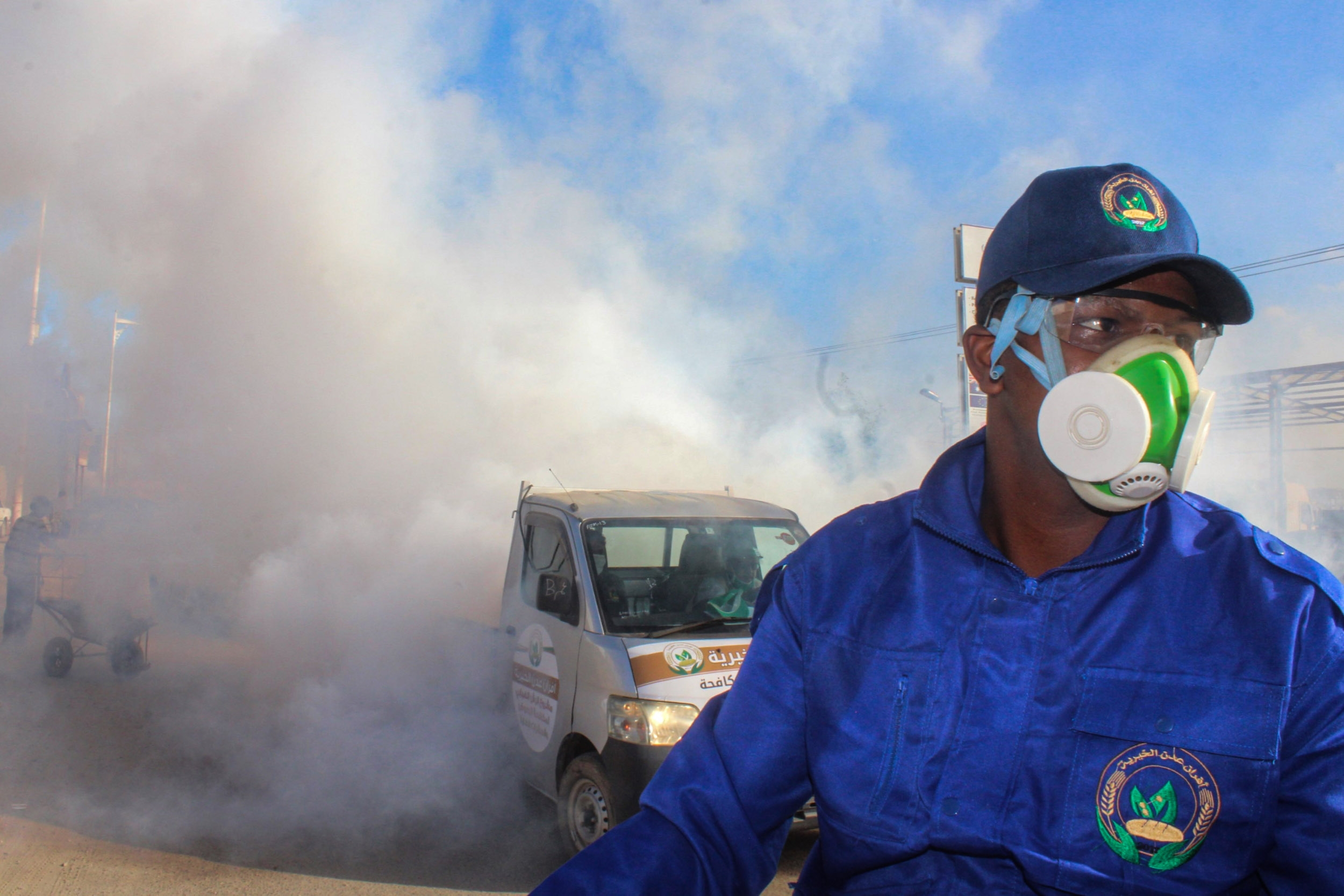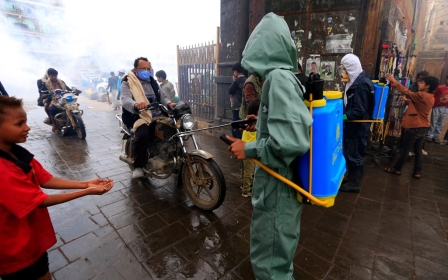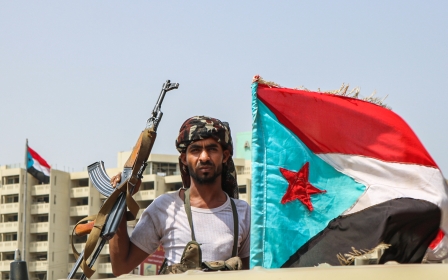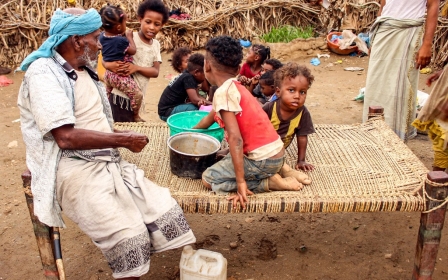Coronavirus in Yemen: Aden declared 'infested' city as toll rises

Aden, the interim seat of Yemen’s UN-recognised government, was declared an “infested” city on Monday by authorities, following a rise in new coronavirus cases in the war-torn country.
On Sunday, the Aden-based national coronavirus committee said the southern port city accounted for 10 of the 17 new Covid-19 cases reported, bringing the total number in areas under the control of the Saudi-backed government to 51, with eight deaths.
In Aden, there has been a total of 35 coronavirus cases reported, and four deaths.
The World Health Organisation (WHO) says there is full-blown transmission of the virus in Yemen, whose population has some of the lowest levels of immunity to disease compared with other countries.
The United Nations has warned that the country’s deeply strained health system is unlikely to be able to cope with the spread of the coronavirus.
New MEE newsletter: Jerusalem Dispatch
Sign up to get the latest insights and analysis on Israel-Palestine, alongside Turkey Unpacked and other MEE newsletters
Since 2014, Yemen has been devastated by a civil war between Houthi rebels and pro-government troops backed with a Saudi-UAE-led military coalition.
The conflict has left more than 100,000 dead, and resulted in more than 3.5 million internally displaced people, refugees, and asylum seekers who depend on humanitarian aid to survive.
The Houthi movement, which controls Sanaa and most large urban centres, has only reported two cases, with one death. The Aden-based government has accused Houthi authorities of covering up an outbreak in Sanaa, an accusation they deny.
The coronavirus committee said Aden had been declared an “infested city” due to the spread of the Covid-19 and other diseases after recent flooding. It said movement from the city to other regions was barred with the exception of the transport of goods.
“The administrative and political situation in Aden is also hampering efforts to combat the coronavirus and this should be remedied so relevant entities can carry out their duties,” the committee said on its Twitter account.
Not just coronavirus
In addition to the coronavirus pandemic and the ongoing civil war, Yemen is still reeling from the deadly flooding in April which ravaged much of the country, including Aden where eight people were killed.
The aftermath of the flooding is particularly harsh for the displaced Yemenis who have lost shelter, who are at risk of getting ill from diseases that thrive in flooded, unsanitary conditions, such as cholera and malaria, according to the UN.
Furthermore, a funding shortfall in aid means that nearly one million displaced Yemenis are at risk of losing their shelter and access to food and medicine, the UN's refugee agency (UNHCR) warned last month, adding that nearly $90m will be needed in order to continue life-saving programmes.
The lack of funding also threatens critical assistance for those "most vulnerable” to the coronavirus in Yemen, according to UNHCR spokeswoman Shabia Mantoo.
In early April, the UN said it was being forced to close down 31 out of 41 humanitarian programmes in Yemen amid a funding shortage, after the US Agency for International Development cut funding over concerns that Houthi forces were blocking aid.
The Houthis have rejected these allegations.
Roughly 24 million people in Yemen rely on aid while 10 million are facing famine, according to the UN.
No peace in sight
On 25 April, a major separatist group declared self-rule in Aden and other southern regions, threatening to renew a conflict with the Saudi-backed government in Yemen’s multifaceted war.
The UAE-backed Southern Transitional Council and the Saudi-backed government of Abd-Rabbu Mansour Hadi are both part of the anti-Houthi coalition, but they turned on each other last year until Riyadh brokered a deal in late November.
Yemen has been mired in violence since the western-backed coalition intervened in March 2015 against the Iran-aligned Houthi movement to restore Hadi’s government to power in Sanaa.
The coalition on 24 April extended by one month a nationwide ceasefire prompted by the coronavirus outbreak as the United Nations seeks to hold virtual talks to agree a permanent truce, coordinate coronavirus efforts and restart peace talks.
The Houthis, who say they are fighting a corrupt system, have not formally accepted the truce, though violence has abated.
Middle East Eye delivers independent and unrivalled coverage and analysis of the Middle East, North Africa and beyond. To learn more about republishing this content and the associated fees, please fill out this form. More about MEE can be found here.




